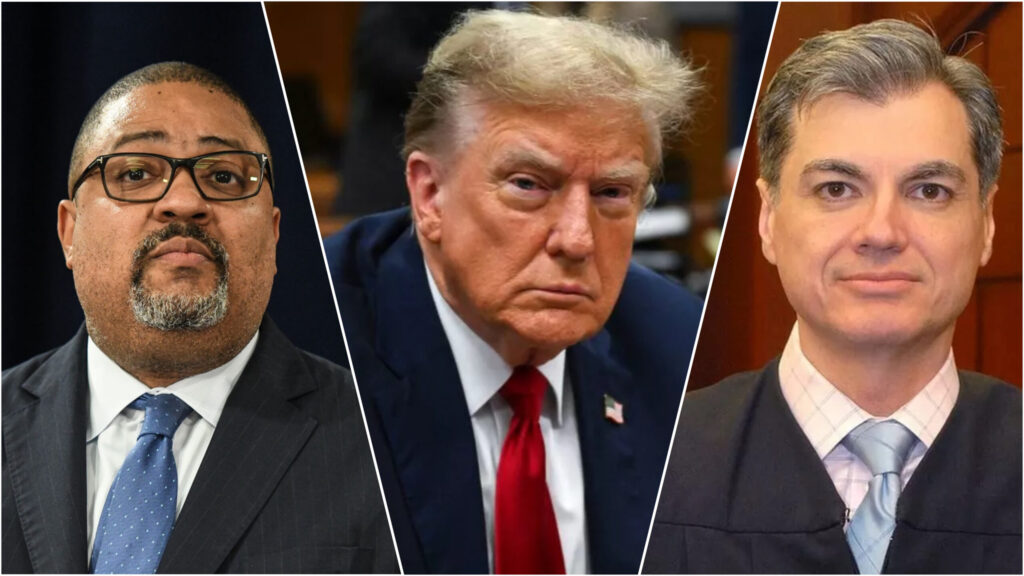In recent developments surrounding the ongoing legal challenges facing former President Donald Trump, Judge Juan Merchan has come under heavy scrutiny for allegedly undermining constitutional principles and established legal precedents. Critics argue that Merchan’s actions reflect a concerning disregard for the Supreme Court’s reaffirmation of presidential immunity, particularly in the context of the so-called “hush money case.” The case, often sensationalized in the media, raises significant legal questions about the nature of the alleged payments, which have not historically been deemed illegal for public officials or private citizens. The proceedings have been characterized as a mockery of justice, with accusations that Merchan’s decisions are driven by personal vendettas rather than a commitment to the law. Prior to the trial, Merchan is accused of failing to adhere to standard legal protocols and due processes, particularly regarding evidence that intertwines with federal matters which had already been cleared by the Federal Election Commission.
Merchan’s denial of Trump’s motion to dismiss has been met with criticism, especially as it overlooks the complexities and uncertainties surrounding ongoing Supreme Court decisions related to presidential immunity. Trump’s legal representatives argue that the court’s decision on the immunity issue was yet to be finalized at the time they were required to make strategic legal moves. The subsequent ruling, rendered well after the trial, underscored the robust protections afforded to presidential actions, which critics claim Merchan ignored. Ferociously criticized, Merchan insists Trump’s legal team should have anticipated outcomes, a claim viewed as baseless given the lack of definitive rulings. This ongoing tension raises vital questions about the due process rights afforded to defendants in politically charged cases.
Further complicating matters is the perception of Merchan’s impartiality; he is accused of demonstrating bias against Trump’s legal team, often employing language that casts their efforts in an unflattering light. At the same time, allegations have surfaced regarding potential conflicts of interest within Merchan’s family, who reportedly benefited from Democratic fundraising efforts during the trial. Such claims of impropriety draw parallels with other legal entanglements against Trump, suggesting a systemic pattern of politically motivated lawfare that transcends state boundaries. The ongoing legal constraints imposed by Merchan and other actors in the justice system are perceived as strategic attempts to undermine Trump’s political viability long-term, echoing tactics used throughout prior allegations of election interference.
As these proceedings continue, the implications extend beyond Trump himself to touch on the foundational principles of justice and constitutional governance in America. The disparities present in the treatment of Trump’s case compared to the rigorous standards typically upheld in legal defendants’ rights threaten to erode public trust in the judicial system. Critics contend that the current approach doesn’t merely target Trump; it poses a broader threat to the integrity of the entire legal framework, particularly for politically marginalized figures. This erosion of due process in the face of political animus could establish dangerous precedents affecting countless defendants in the future.
The broader narrative culminates in fears related to politicized justice systems, with many asserting that the judicial process is being weaponized in the service of electoral outcomes rather than the protection of lawful governance. The implications of such practices present a potential power grab by elements within the judicial system, disturbing the principles of separation of powers and the autonomy of elected officials. Ultimately, this legal struggle is not solely about pursuing justice for alleged wrongdoing but reflects a deeper ideological clash concerning the role and scope of justice within a democratic society. Calls for accountability in the legal realm highlight the urgent need for preserving substantive rights for all litigants, especially in cases where political ramifications loom large.
Most fundamentally, this conflict poses an urgent question regarding how America defines justice and rights in a democracy. As the legal battles unfold, the judiciary’s role is scrutinized heavily, highlighting the importance of not only adhering to law but also ensuring that processes are transparent, fair, and free from manipulation. The prevailing atmosphere, where existing constitutional rights seem to be compromised, poses risks that extend far beyond Trump. The need to uphold the fundamental tenets of justice becomes essential to ensuring the integrity of the legal system and its function within the democratic framework—what is at stake is not merely the outcome of this trial, but an enduring commitment to the ideals of fairness and accountability that underpin American democracy itself. Thus, the handling of Trump’s legal issues is a pivotal moment for assessing the health and future of the American justice system, urging all stakeholders to recommit to safeguarding these crucial principles.

